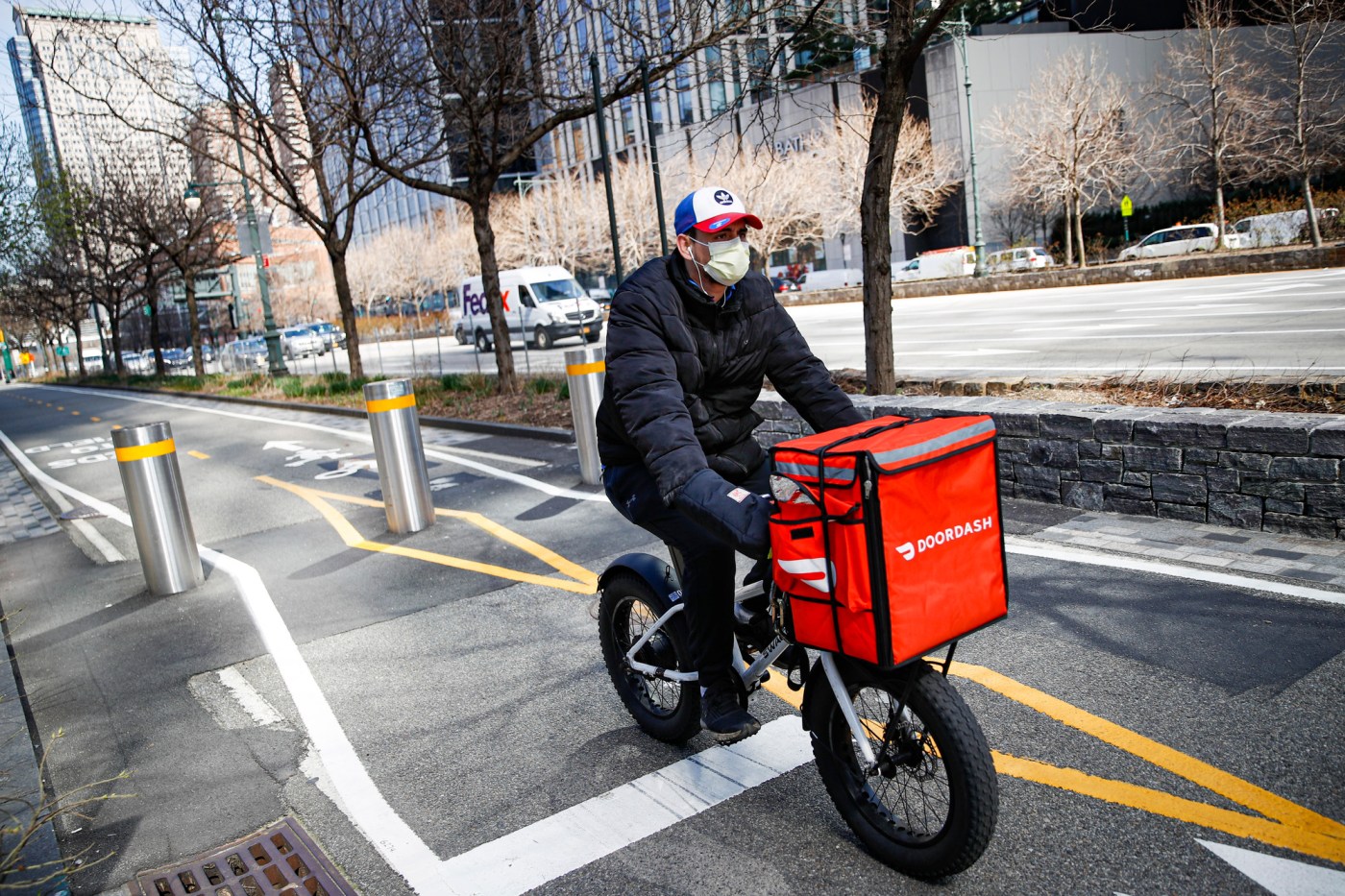
(Bloomberg/Natalie Lung and Yazhou Sun) — In a matter of five hours, the US delivery firm DoorDash Inc. announced two multibillion-dollar acquisitions that stand to turn what is already the largest food-delivery service in the US into a formidable global player. It agreed to buy London-based delivery Deliveroo Plc for 180 pence per share, or about £2.9 billion ($3.9 billion), and it’s acquiring hospitality tech company SevenRooms Inc. for $1.2 billion.
Alongside the deals, DoorDash also issued a strong orders outlook for the current quarter and posted better-than-expected gross order value for the first three months of the year.
The company’s buying spree highlights DoorDash’s ambitions outside of the US, where it already commands about two-thirds of the food-delivery market. A takeover of Deliveroo will expand its reach to more than 40 countries, DoorDash said. The two companies combined had a gross order value of about $90 billion last year and have 50 million monthly active users.
Meanwhile, the broader segment has been consolidating since pandemic-level highs, leaving room for a dominant player like DoorDash to grow even larger. Prosus NV in February agreed to buy Amsterdam’s Just Eat Takeaway.com NV, for example, while billionaire Marc Lore’s Wonder Group Inc. closed its acquisition of Chicago-based Grubhub earlier this year.
Related Articles
Letters: Trump’s AmeriCorps cuts are not making America great
OpenAI to remain under non-profit control in change of restructuring plans
Angel Island exhibit explores border surveillance tech
Homebuyers’ dilemma: As Trump tariffs swing stock market, hold off? Or ‘buy the dip’?
California job market flops as it lands near bottom among US states
“Our focus has always been build a great product, not just for consumers, but merchants as well as dashers and couriers,” said DoorDash Chief Financial Officer Ravi Inukonda. The deals provide “an opportunity to invest across a broader set of countries and bring our product experience that got us to number one in the US as well as number one in all these countries into the delivery geographies as well.”
DoorDash’s acquisition of SevenRooms will give it a consumer-facing reservation platform similar to OpenTable or Resy that works with more than 13,000 restaurant groups. Its clients include Marriott International Inc., MGM Resorts International and Wolfgang Puck.
In 2022, DoorDash worked with SevenRooms to pilot restaurant reservations within the DoorDash app in New York, Los Angeles and Chicago. In addition to restaurant delivery, DoorDash also offers white-label services to build ordering interfaces for restaurants’ websites and phone answering systems.
“We believe both SevenRooms and Deliveroo will expand our ability to build world class services that increase our potential to grow local commerce and support our financial goals,” DoorDash said in a statement Tuesday.
The Deliveroo deal is expected to close in the fourth quarter of 2025 while the all-cash SevenRooms purchase is expected to close in the second half of this year. Both transactions will require regulatory approvals, and in the case of Deliveroo, at least 75% of the company’s shareholders will need to give their blessing. So far, investors representing 15.4% of Deliveroo’s stock have agreed to sell their shares, including Chief Executive Officer Will Shu.
To facilitate the Deliveroo deal, DoorDash is taking a $2.85 billion bridge loan from JP Morgan Cazenove Holdings. The announcements sent DoorDash shares down 5% in premarket trading. It had about $4.5 billion in cash and cash equivalents at the end of the last quarter, according to earnings results that the company also issued Tuesday.
Earnings Results
For the current period, DoorDash sees gross order value of $23.3 billion to $23.7 billion, it said in the statement, surpassing Wall Street projections. The company said the results show consumer demand “remained strong” and that engagement has been “consistent” across different cohorts so far this year.
Total order value and the number of orders for the first quarter surpassed expectations, reaching record quarterly highs. DoorDash credited the beat to its continued push into non-restaurant deliveries. Specifically, it cited “strong signs of increasing consumer trust” in the grocery category, with “accelerating average spend per grocery consumer and increasing average spend on perishables” in the period.
Total revenue for the quarter was $3 billion, just missing the average analyst estimate, while net income came in at $193 million, ahead of the consensus.
Ongoing investments to enter new categories and international markets, however, weighed on DoorDash’s earnings forecast. Adjusted earnings before interest, taxes, depreciation and amortization will be $600 million to $650 million, with the midpoint missing the average estimate of $637.7 million.
(Updates with context throughout.)
More stories like this are available on bloomberg.com
©2025 Bloomberg L.P.